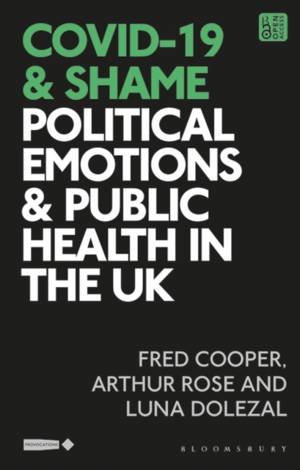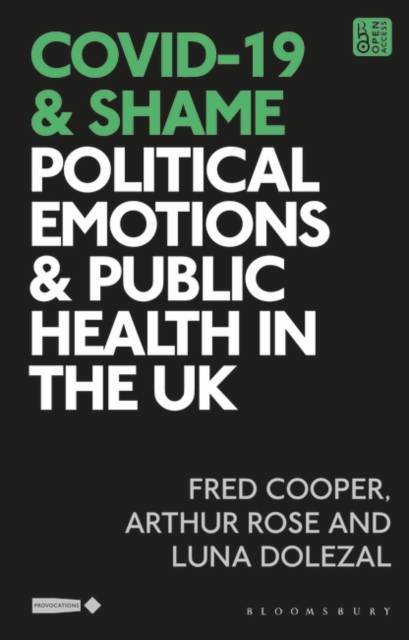
- Afhalen na 1 uur in een winkel met voorraad
- Gratis thuislevering in België vanaf € 30
- Ruim aanbod met 7 miljoen producten
- Afhalen na 1 uur in een winkel met voorraad
- Gratis thuislevering in België vanaf € 30
- Ruim aanbod met 7 miljoen producten
Zoeken
Covid-19 and Shame
Political Emotions and Public Health in the UK
Fred Cooper, Luna Dolezal, Arthur Rose
€ 103,45
+ 206 punten
Uitvoering
Omschrijving
This open access book examines the various ways that shame, shaming and stigma became an integral part of the United Kingdom's public health response to COVID-19 during 2020.
As the Covid-19 pandemic unfolded in 2020, it quickly became clear that experiences of shame, shaming and stigma dominated personal and public life. From healthcare workers insulted in the streets to anti-Asian racism, the online shaming of "Covidiots" to the identification of the "lepers of Leicester", public animus about the pandemic found scapegoats for its frustrations. Interventions by the UK government maximised rather than minimized these phenomena. Instead of developing robust strategies to address shame, the government's healthcare policies and rhetoric seemed to exacerbate experiences of shame, shaming and stigma, relying on a language and logic that intensified oppositional, antagonistic thinking, while dissimulating about its own responsibilities. Through a series of six case studies taken from the events of 2020, this thought-provoking book identifies a systemic failure to manage shame-producing circumstances in the UK. Ultimately, it addresses the experience of shame as a crucial, if often overlooked, consequence of pandemic politics, and advocates for a "shame sensitive" approach to public health responses. The open access edition of this book is available under a CC BY 4.0 licence on www.bloomsburycollections.com Open access was funded by The Wellcome Trust.Specificaties
Betrokkenen
- Auteur(s):
- Uitgeverij:
Inhoud
- Aantal bladzijden:
- 160
- Taal:
- Engels
- Reeks:
Eigenschappen
- Productcode (EAN):
- 9781350283411
- Verschijningsdatum:
- 9/02/2023
- Uitvoering:
- Hardcover
- Formaat:
- Genaaid
- Afmetingen:
- 140 mm x 216 mm
- Gewicht:
- 335 g

Alleen bij Standaard Boekhandel
+ 206 punten op je klantenkaart van Standaard Boekhandel
Beoordelingen
We publiceren alleen reviews die voldoen aan de voorwaarden voor reviews. Bekijk onze voorwaarden voor reviews.







